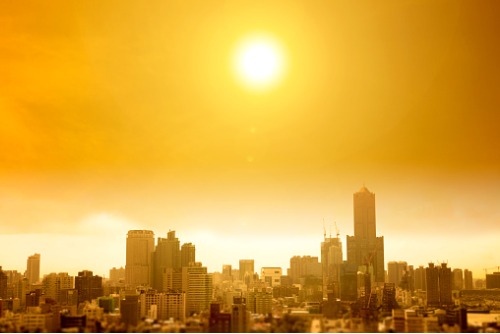

As climate change becomes more and more apparent worldwide, Hong Kong is facing record levels of heat, according to a report from a global insurance law firm.
Over the last 100 years, the annual number of hot nights in Hong Kong has increased 35 times, according to a report by Clyde & Co, which analyses the challenge of extreme heat faced by the region and the measures being taken to address this problem.
The report is the second part of a global series from Clyde & Co looking at how vulnerable cities around the world are responding to climate change, urbanisation and globalisation, as part of the firm’s resilience campaign. Currently, approximately 55% of the world’s population live in urban areas and this number is expected to increase to 68% by 2050, it said.
As a result, businesses worldwide are facing an increasingly complex and interconnected risk landscape, and how they respond can be business critical. The Resilience campaign examines many of these issues, helping businesses understand the latest thinking on risk management, the regulatory landscape and what the future may hold.
In Hong Kong, rising sea surface temperatures are expected to intensify the frequency and intensity of tropical cyclones, the report said, adding that super typhoons were more common now than before.
“Resilience to climate change in Hong Kong will be critical for insurers, banks and property owners, who all have an incentive to mitigate future losses arising from climate change,” said Simon McConnell, Hong Kong managing partner of Clyde & Co. “Despite the size of the challenge, Hong Kong is well equipped to address carbon pollution and adopt greater energy efficiency.”
According to McConnell, Hong Kong was more proactive than many cities, with major policies in place to counter global-warming.
“There are ambitious plans underway as part of the Greater Bay Area (GBA) to curb air pollution and waste, as well as fostering low carbon initiatives, environmental technology and green buildings,” he said.
The report found about 70% of Hong Kong’s carbon emissions are caused by electricity generation, but it is estimated that with a shift towards natural gas this will result in a 20% reduction of carbon emissions.
Furthermore, the first waste-to-energy generator in Hong Kong, T-Park, which captures energy generated from sewage sludge treatment, became operational in 2016, with more generators planned.
Measures have also been taken to regulate emissions by marine vessels in Hong Kong, the report said, targeting harmful sulphur dioxide, nitrous oxides and particulate matter.
